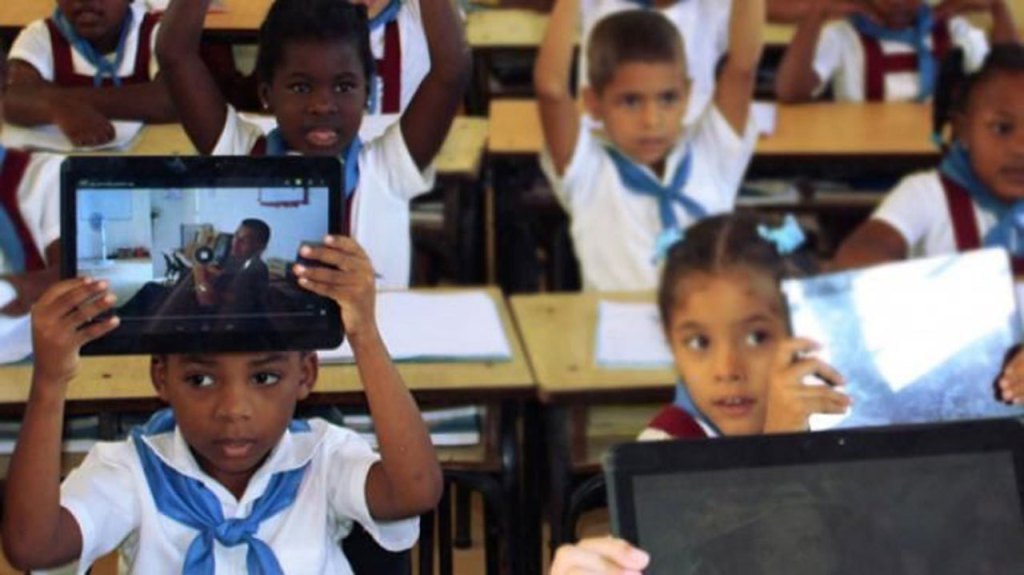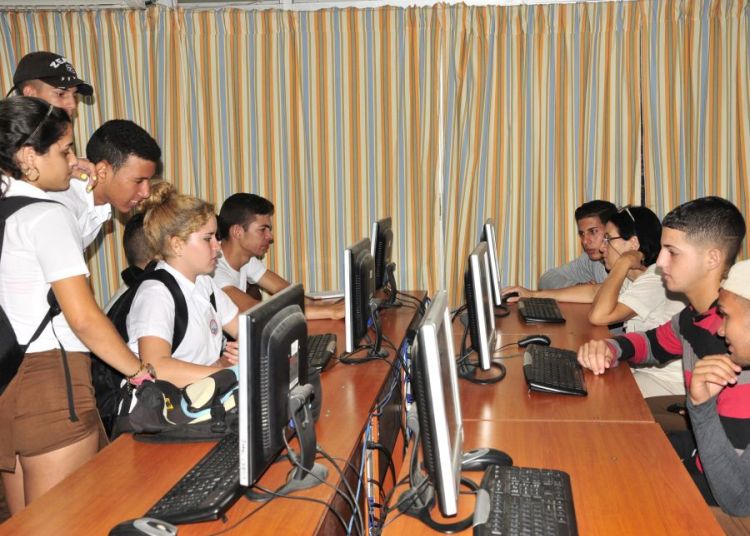Although a large percentage of Cuban teachers belong to the analogical generation, the Ministry of Education (MINED) is openly committed to their upgrading and training in the modern technological universe, so they can acquire digital skills to be on par with the students’ skills.
Fernando Ortega Cabrera, MINED’s national director of educational technology, affirmed that said strategy is an essential part of the computerization process of the Cuban educational system.
In a recent interview with the newspaper Granma, the official said that they are currently in the second phase of the Electronic Government, which is the interaction, which has led to the exchange with users through the institutional website of MINED.

Ortega Cabrera also explained that this strategy has a responsibility with the use of public access platforms, which contribute to collaborative networking. “This allows teachers and students to interact in one classroom with another classroom and program projects of any kind between them.”
As is logical, vital in this enterprise is the connection of almost 3,500 schools to the data transmission network of the MINED, an objective that is sought after linking more than 300 centers between municipal departments, Pioneer palaces and homes for children with no family protection, Granma said.
Precisely, among the priorities of the process of computerization of educational work is to develop and deploy computer resources for the Computer Network, as well as follow up on the connectivity indicators and data transmission services of the National Education System.
Fernando Ortega Cabrera said there are some setbacks to carry out such a plan, such as the limitations when “acquiring technology that allows each of our students to access technology resources more easily to be able to teach subjects.
“Currently, it is difficult for MINED to acquire tablets, computers and smart classrooms, which could favor the teaching-learning process, which includes the technological part, which goes through the whole issue of acquisition and the available money that the nation has to invest. Sometimes the country has money, but the companies don’t sell because of the blockade,” he added.
Ortega Cabrera explained that, despite the limitations, the idea is that all provincial departments and connected schools have their own websites, not only on social networks. In order to achieve that, an attempt has been made to “reverse the state of connectivity in educational centers,” so that scientific and psycho-pedagogical content can be accessed free of charge.
In addition, MINED believes that it is essential to guide young people in the responsible, safe and healthy use of new technologies.
“Another of the great challenges is to train teachers and students in such a way that they can join a digital society, based on the country’s computerization policy, in order to be digital citizens, who are abreast of everything that is happening in Cuba.”










